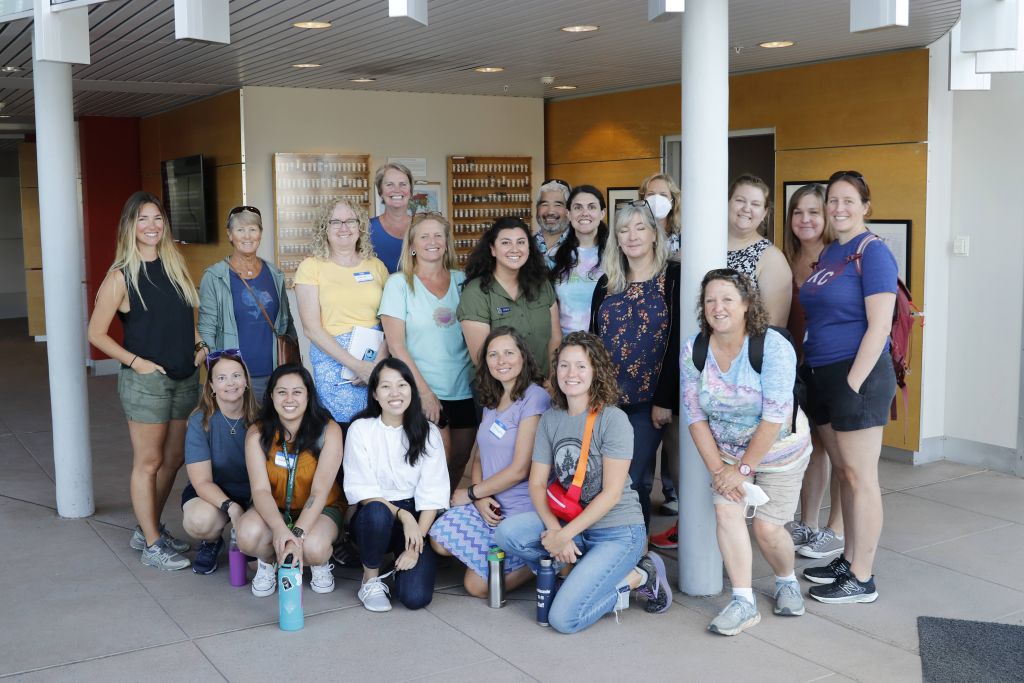PI-CASC represented at annual EARTH workshop
The Pacific Islands Climate Adaptation Science Center (PI-CASC) in late July engaged with researchers and educators at the annual Education and Research: Testing Hypotheses (EARTH) program workshop.
The EARTH program is the result of the collaboration between the Monterey Bay Research Institute and the Monterey Bay Aquarium in an effort to emphasize the importance of research and scientific methodology to the public. The program uses data from ocean observatories to bolster online outreach tools as a resource for scientists, teachers, students, and the public. The annual workshops are intended to establish relationships between teachers and researchers through exchanging data and resources.
U.S. Geological Survey (USGS) PI-CASC contractor Cherryle Heu represented the center at the weeklong event. As a co-lead for USGS PI-CASC’s K-12 Education Hub project, Heu took this opportunity to gather information that could further support her project, while also promoting the project to fellow attendees.
“Throughout the workshop, I thought about what topics and datasets we can possibly provide for our teachers, while also learning more about the lesson plan development process for my work with the PI-CASC Education project,” she said. “It was a wonderful experience where I met incredibly talented teachers across the country who are dedicated to providing enticing and meaningful lesson plans on climate change and our oceans.”
The first half of the workshop involved researchers sharing their projects along with helpful data and resources available for educators to use. Afterwards, attending teachers were able to design lesson plans based on the topics and data presented so that they can apply to their own curricula back home.
This year, the workshop was co-hosted by the Global Ocean Biogeochemistry Array (GO-BGC), a project funded by the National Science Foundation that builds and deploys a network of floats to collect data and monitor ocean health. PI-CASC plans to co-host the event in 2023, which is set to take place in Hawaiʻi.


